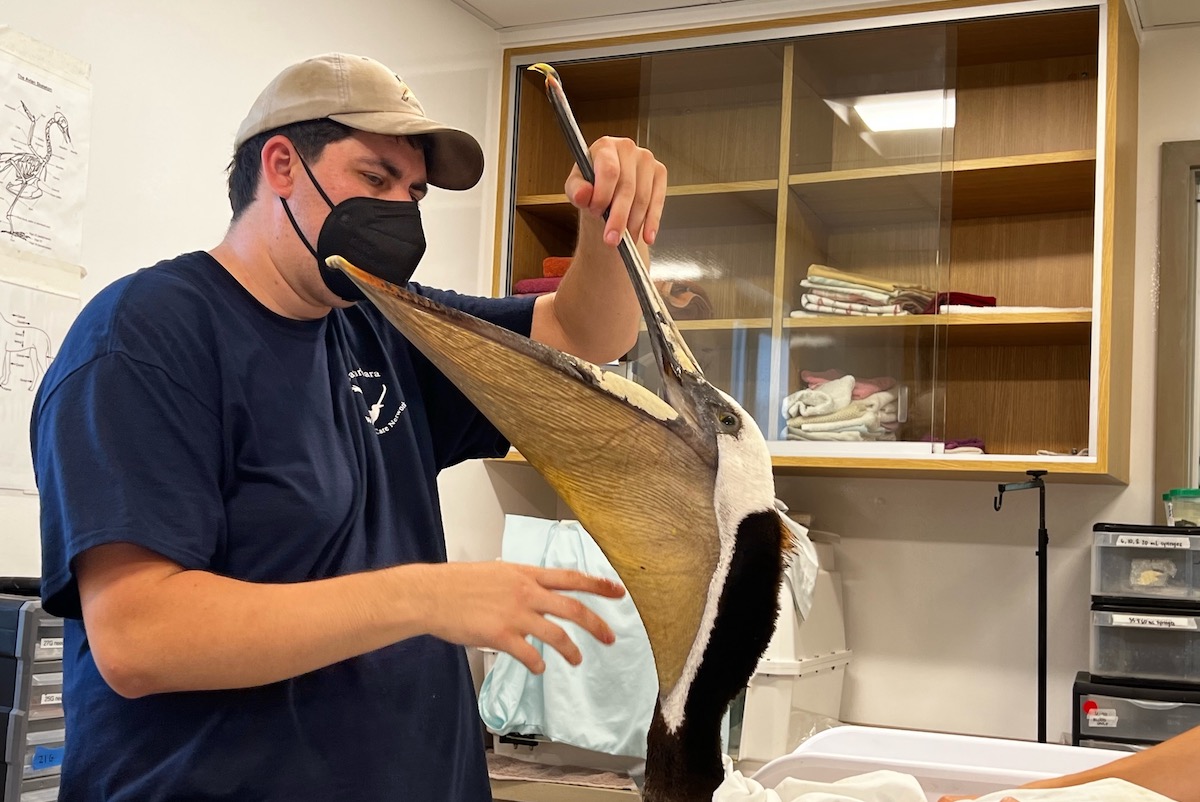Still a Mystery, Pelican Health Crisis Continues in Santa Barbara
Wildlife Care Network Has Receives 230 Sick Seabirds over Last 10 Days

After the deluge of sick brown pelicans last week, the Santa Barbara Wildlife Care Network (SBWCN) was finding its hands less full as of Monday, when only three of them were taken into care. The number had been dropping since a peak of 51 pelicans last Wednesday; the following days saw an intake of 37, 16, 14, and 18 birds, respectively. SBWCN communications manager Lauren Gonzales says that of the 230 pelican patients received over the last 10 days, 67 percent are still in care or were transferred, while 33 percent died.
California Fish and Wildlife is still investigating the cause of the pelican health crisis, and officials there are reluctant to make any speculations. SBWCN Executive Director Ariana Katovich anticipates that some information will be released later this week.
Most of the pelicans under SBWCN care are now healthy enough to be put in a secure aviary outdoors, where there is fresh air and large pools of water. The conditions are considerably more tolerable in the aviary than inside the building’s seabird pen, where the room is overwhelmed by the smell of animal waste and buckets of fish that the pelicans feed on. “It can get pretty stinky in there, especially since we need to keep the [seabird pen] warm for the pelicans,” said Katovich.
Sign up for Indy Today to receive fresh news from Independent.com, in your inbox, every morning.
SBWCN staff have been reinforced by local volunteers and personnel from partner organizations like the Oiled Wildlife Care Network. Forty-five pelicans initially under SBWCN care have been transferred to the International Bird Rescue. The pelicans themselves are fairly high-maintenance; staffers need to keep up with their schedule of feeding and hydration, and each pelican generally requires two people to handle at a time.
The timing of the pelican health crisis has constituted an additional challenge for SBWCN, as brown pelicans and many other species of local wildlife undergo baby season from around March to July. “Intake is always higher among all animals during this time of year,” Katovich explained. “There are orphans in need of care because parents sometimes die from natural causes or human error.” SBWCN takes in around 30 to 40 of these orphans per day during baby season. This year has not seen a notable increase among animals that are not pelicans.
Anyone who finds a pelican in need of help can call the SBWCN Helpline at (805) 681-1080. Deceased birds should also be reported, but not touched or handled. According to the Sheriff’s Office, there is no animal care number after 5 p.m. that is guaranteed to have an operator.
Support the Santa Barbara Independent through a long-term or a single contribution.



